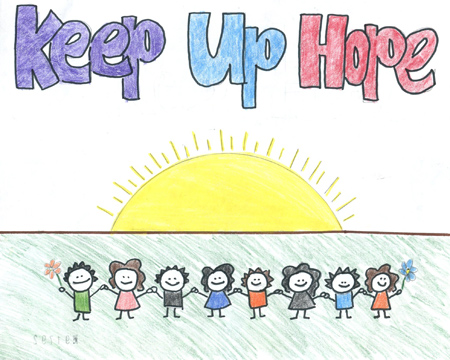Emerson helps Japan after disaster
When a devastating earthquake and tsunami struck Japan earlier this year, Emerson Assistant Professor of Journalism Paul Niwa knew he wanted to do something meaningful to help in the aftermath of the disaster. Niwa, who travels to Japan annually as the coordinator of a fellowship program for graduate journalism students, got in touch with his contacts in Japan and asked how he could help. What survivors would need most, he was told, is to have their spirits lifted during the coming weeks and months, which they will surely spend living in shelters.
Out of that conversation, the Genki Notes project was created. In Japanese, “Genki” means a source of energy and happiness. The Genki Notes project aims to bring smiles, laughter, and hope to the people of northeastern Japan’s Tohoku region. The project is collecting handmade notes of support from American schoolchildren and others and delivering them to Japanese tsunami victims who are staying in temporary shelters. The project is a collaboration of the U.S.-Japan Council, Emerson College, and the Japan Foundation Center for Global Partnership.
“A lot of Americans are looking for a way to contribute to the rebuilding of the earthquake region in a very personal way,” said Niwa. “What the Genki notes have done is open up a way for people to do something meaningful, that’s not financial, to let people in the earthquake region know they are being thought of and there are people behind them.”

To date, more than 3,000 people from across the United States have participated in the project. Notes have been pouring in from places as far away as Oklahoma and Hawaii and from students ranging from preschool age through high school. Employees from a local card store even pitched in, contributing handwritten notes from their store.
“It’s just great, and I think it shows the generosity of Americans,” said Niwa.
The notes can be written in English, Japanese, or in the universal language of art. They are collected at Emerson and then sent to the Japan Foundation in Tokyo. Volunteers then translate the notes and deliver them to shelters in the northeastern part of the country.
Niwa and Molly Coombs, a recent Emerson graduate who is helping manage the project, scan every Genki note they can and post them to a map on genkinotes.org, so participants can see the impact they’ve made and the impact others are making.
“We just want people in Japan to recognize that they have friends around the world pulling for them,” said Niwa. “They’re in those shelters, but they’re not by themselves.”
Categories